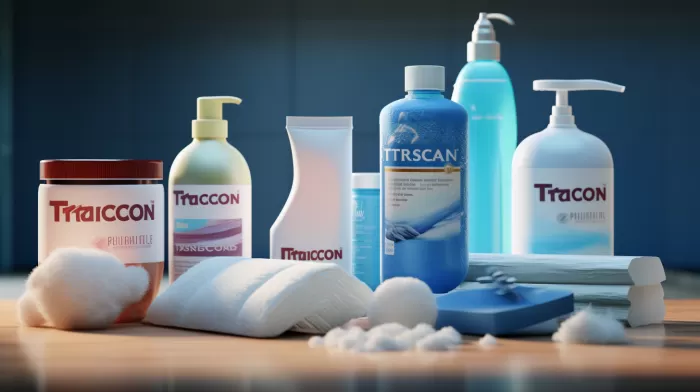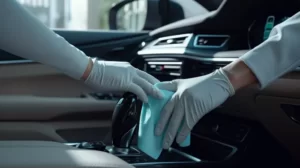Scrubbing your house frequently might seem like a great way to fight germs and stay healthy, but the reality is that you might be endangering your health even further. Adding antibacterial chemicals to cleaning products can be a harmful move, causing a range of health issues.
Carcinogenic Properties of Antibacterial Chemicals
A prime example of this issue is triclosan, an antimicrobial chemical commonly used in cutting boards, soaps, cosmetics, and various personal care products. This chemical is now under suspicion of being linked to cancer. Norwegian researchers have shown that triclosan is an endocrine disruptor, increasing the risk of breast cancer and other types of tumors by acting like hormones when absorbed through the skin or ingested.
These endocrine disruptors are dangerous because they warp cell development, raising the likelihood of cells becoming cancerous. The study focused on triclosan and octylphenol, a chemical frequently added to plastic, paint, and pesticides. Lab tests on breast cancer cells revealed that both chemicals change gene function and promote tumor growth. Long-term exposure could lead to larger and denser tumors.
Increased Risk of Allergies
Another harmful effect of triclosan is that it heightens the risk of children developing allergies. A study analyzing allergies in 10-year-olds found that those with more triclosan in their urine had worse hay fever symptoms, indicating that the higher the exposure to the chemical, the more intense the allergy symptoms.
The problem, researchers say, is that triclosan kills both good and bad bacteria indiscriminately. Good bacteria in the digestive tract and on the skin are essential for the immune system to avoid allergic reactions. Removing this good bacteria significantly raises the likelihood of developing severe allergies.
Pregnancy Complications
Triclosan is also strongly suspected of causing reproductive and developmental issues in pregnant women and their babies. It has been shown to transfer to fetuses, affecting their development. Research conducted at Arizona State University found triclosan in all urine samples from the pregnant women tested and detected it in around half of the umbilical cord blood samples.
While many medical professionals believe that triclosan should be banned in consumer products, the Food and Drug Administration has yet to make a decision regarding this chemical. With around 2,000 consumer products containing triclosan, including toothpaste, carpet, school supplies, and toys, avoiding this dangerous substance is becoming increasingly challenging.
It is essential to be aware of the products we use in our daily lives and make informed decisions about which products to buy. Avoiding products with triclosan is just one way to prevent increasing health risks. Opting for natural, eco-friendly cleaning products can be a good alternative to protect your health and the environment.
Switching to Safer Alternatives
One way to avoid harmful chemicals in cleaning products is by opting for natural, plant-based alternatives. Many brands now offer eco-friendly cleaning products that are both safe for your health and the environment. Look for brands that use biodegradable ingredients, avoid synthetic fragrances and dyes, and utilize recycled packaging.
Another route to safer cleaning is to choose homemade methods. Vinegar, lemon, and baking soda are powerful natural cleaners that can be used for various household tasks. A mixture of white vinegar and water can be used as a glass cleaner, while baking soda and lemon juice can tackle stubborn stains and odors.
When making the switch to safer cleaning products, it can be helpful to gradually replace chemical-laden options in your home as they run out. Research and compare new products, ensuring they meet specific safety standards and are free from harmful ingredients like triclosan.
Remember that a clean home doesn’t have to be synonymous with dangerous chemicals. Choose wisely and create a healthy, safe environment for you and your family.



